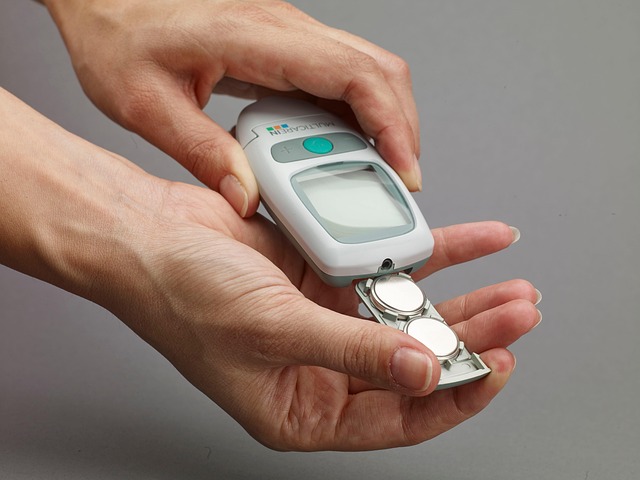In the UK, Liver Function Tests (LFTs) are crucial for diabetes patients as they help detect liver issues early through measuring enzymes like ALT and AST, bilirubin, and albumin. Abnormal LFT results, combined with symptoms and patient history, aid in diagnosing conditions like hepatitis or fatty liver. The UK's Diabetes Blood Test is a vital tool for diagnosing and managing diabetes, with optimal performance guided by NHS guidelines, including pre-test fasting. Regular monitoring of blood glucose levels (<5.6 mmol/L normal) prevents complications.
Liver function tests (LFTs) are essential tools for medical professionals, offering insights into liver health. This comprehensive guide delves into the intricacies of LFTs, covering everything from understanding basic tests to interpreting results with precision. We explore specific indications and best practices, including key considerations for UK diabetes blood tests, ensuring healthcare providers can accurately assess and manage liver-related conditions.
- Understanding Liver Function Tests: A Comprehensive Overview
- Indications and Interpretation for Medical Professionals
- UK Diabetes Blood Test: Guidelines and Best Practices
Understanding Liver Function Tests: A Comprehensive Overview
Liver function tests (LFTs) are a group of blood tests that help evaluate the health and efficiency of your liver. These tests are essential tools for medical professionals to assess liver damage, identify potential liver diseases, and monitor existing liver conditions. In the UK, diabetes patients often undergo these tests as part of their regular blood work, as liver function can be closely linked to metabolic health.
Comprised of several key measurements, LFTs look at enzymes and proteins produced by the liver. Elevated levels of certain enzymes like ALT (alanine aminotransferase) and AST (aspartate aminotransferase) may indicate liver inflammation or damage. Bilirubin, a breakdown product of red blood cells, is another crucial marker; high levels can suggest issues with liver processing. By interpreting these results in conjunction with patient symptoms and medical history, healthcare providers gain valuable insights into their patients’ liver health, enabling effective diagnosis and treatment planning.
Indications and Interpretation for Medical Professionals
Liver function tests (LFTs) are crucial diagnostic tools for medical professionals, offering insights into the health and functionality of the liver. These blood tests are indicated in various scenarios, particularly when a patient exhibits symptoms or risk factors associated with liver damage or disease. In the UK, diabetes management often involves regular Diabetes Blood Test checks, which may prompt further investigation if abnormal LFT results are observed.
Interpretation of LFTs requires careful consideration of reference ranges and clinical context. Enzymes like alanine aminotransferase (ALT) and aspartate aminotransferase (AST) are key markers for liver inflammation or cell damage. Elevations in these enzymes may indicate conditions such as hepatitis, fatty liver disease, or even acute or chronic liver injury. Other parameters, like bilirubin and albumin, help assess liver synthesis and excretion functions, allowing medical professionals to make informed decisions regarding patient management and treatment planning.
UK Diabetes Blood Test: Guidelines and Best Practices
In the UK, the Diabetes Blood Test plays a crucial role in managing and diagnosing diabetes among patients. Healthcare professionals should adhere to specific guidelines when conducting this test to ensure accuracy and effective patient care. The National Health Service (NHS) provides clear directives for the optimal performance of the UK Diabetes Blood Test.
Best practices include ensuring proper fasting, typically 8–12 hours without food or drink (except water), to prepare the patient’s body for an accurate reading. The test measures blood glucose levels, and results are interpreted based on established criteria. For adults, a normal fasting blood sugar level is below 5.6 mmol/L (100 mg/dL), while a diagnosis of diabetes is made if levels are 11.1 mmol/L (200 mg/dL) or higher, or if symptoms suggest hyperglycemia. Regular monitoring and adherence to these guidelines are essential for managing diabetes effectively and preventing complications.
Liver function tests (LFTs) are essential tools for medical professionals, providing critical insights into liver health. As discussed, understanding these tests, their indications, and proper interpretation is vital for accurate diagnosis and effective patient management, particularly in the context of UK diabetes blood test guidelines. By adhering to best practices, healthcare providers can ensure optimal care for patients with liver-related concerns.
